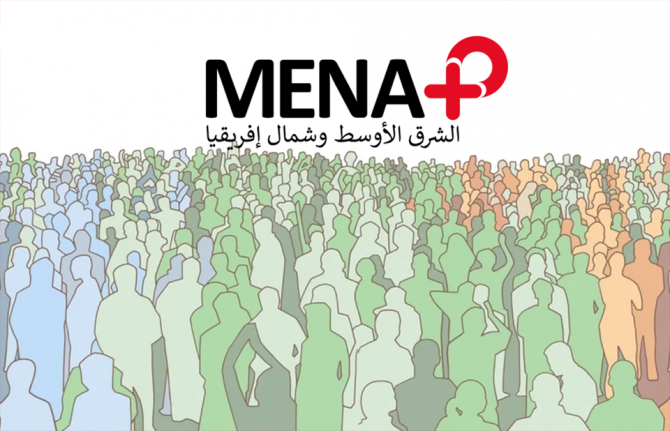

Feature Story
Regional network of people living with HIV launched in the Middle East and North Africa
19 April 2021
19 April 2021 19 April 2021The HIV epidemic in the Middle East and North Africa is still growing—an estimated 20 000 new HIV infections in 2019 marked a 25% increase over the 16 000 new infections in 2010. The region is far from controlling its HIV epidemic and HIV treatment coverage is low, with only 38% of people living with HIV accessing HIV treatment in 2019, resulting in 8000 people dying from AIDS-related illnesses in the region.
Community-based organizations can play important roles in the region’s HIV response, but they are constrained in many countries by limited civic space and resources. In response, community leaders living with HIV have come together to launch the first regional network of people living with HIV, MENA Plus, to strengthen the community HIV response in the region.
“It is time people living with HIV have a network where they make their own decisions and get our rights without stigma and discrimination,” said Amina Ibrahim (not her real name), a member of MENA Plus from Egypt.
With a vision of a society where people living with HIV live with respect and dignity, enjoy their full rights and have equal opportunities, MENA Plus aims to enhance the leadership, representation and effective engagement of people living with HIV across the Middle East and North Africa.
“We need to discuss the suffering of people living with HIV, and especially of children living with HIV, and how to educate them about living their lives,” said Soumayya Abdelwafi (not her real name), a member of MENA Plus from Morocco.
The network will advocate for HIV treatment and prevention services in the region, the sustainability of HIV funding and ending vertical (from mother to child) transmission of HIV and new HIV infections among children.
MENA Plus will put a strong emphasis on human rights, campaigning on sexual and reproductive rights, sensitization on gender diversity and sexual orientation and the rights of minorities and key populations—vital for a region whose HIV epidemic is highly concentrated among key populations and their sexual partners.
“With diversity, we enrich networking and advocacy to help achieve rights,” said Souhaila Abdalla (not her real name), a member of MENA Plus from Tunisia.
Through enhancing the leadership, representation and effective participation of people living with HIV, especially in decision-making around health and social and financial programmes, MENA Plus aims to empower people living with HIV in the region.
“MENA plus is a welcome addition to our UNAIDS team of partners across the Middle East and North Africa. Our friends, family and colleagues living with HIV have shown remarkable resilience, determination and innovation in responding to the interconnected challenges posed by HIV and COVID-19 in recent years. Through MENA Plus, their work has the potential for even greater impact, as the new global AIDS strategy puts community-led responses at the heart of UNAIDS’ work,” said Shereen El Feki, Director of the UNAIDS Regional Support Team for the Middle East and North Africa.



